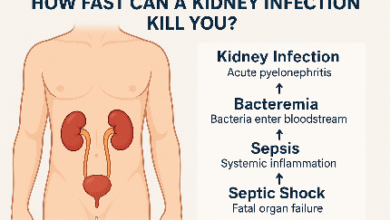The Science Behind Peptides for Weight Loss: Benefits, Risks, and Results

The Science Behind Peptides for Weight Loss: Benefits, Risks, and Results
When it comes to weight loss, most people think of diet plans, exercise routines, and maybe a few supplements. But in recent years, one category of compounds has been gaining attention in both the medical and fitness worlds, peptides. You may have heard the buzz: “peptides for weight loss therapy can burn fat, boost metabolism, and help you keep muscle while losing weight.” But what’s the real story? Is this a passing trend, or is there actual science to back it up? Let’s dive deep into what peptides are, how they work, their potential benefits, the risks involved, and what kind of results you can realistically expect.
What Are Peptides?
Peptides are short chains of amino acids, the building blocks of proteins. Think of them as small but powerful messengers that tell your body how to function. Unlike full-length proteins, peptides are smaller and can interact more directly with cells and receptors in your body.
Your body naturally produces a variety of peptides that regulate everything from hormone production to immune responses. For example:
- Collagen peptides keep your skin and joints healthy.
- Insulin, technically a peptide hormone, regulates blood sugar.
In weight loss therapy, the focus is often on synthetic or lab-made peptides designed to mimic or enhance natural processes that help burn fat, build muscle, or improve metabolism.
How Peptides Work in the Body
Peptides work by binding to receptors on the surface of your cells, essentially acting as a “signal” that triggers specific biological processes. For weight loss, these signals might:
- Stimulate growth hormone release, which can help with fat burning and muscle maintenance.
- Improve insulin sensitivity, allowing your body to use energy more efficiently.
- Influence appetite regulation, helping you feel full longer.
They don’t directly melt fat like magic, instead, they create the right hormonal and metabolic environment for your body to burn fat more effectively, especially when combined with proper nutrition and exercise.
Peptides and Weight Loss: The Mechanism
The connection between peptides and weight loss usually comes down to three main mechanisms:
- Boosting Growth Hormone Levels
Some peptides, like CJC-1295 and Ipamorelin, stimulate your pituitary gland to release more growth hormone. Higher levels of growth hormone can increase your metabolic rate, improve fat utilization, and support lean muscle mass, all important for weight loss. - Regulating Appetite
Certain peptides mimic hormones that signal fullness to your brain. For example, GLP-1 agonists (like semaglutide) help reduce hunger and slow down digestion, making it easier to eat less without feeling deprived. - Enhancing Fat Metabolism
Peptides like AOD-9604 have been studied for their ability to break down stored fat and prevent new fat accumulation without significantly affecting blood sugar levels.
Types of Peptides Commonly Used for Weight Loss
Here are some of the most talked-about peptides when it comes to fat loss:
- CJC-1295: A growth hormone-releasing hormone (GHRH) that works with your body to naturally produce more growth hormone over time.
- Ipamorelin: Often paired with CJC-1295, this peptide specifically stimulates growth hormone release without raising cortisol levels.
- AOD-9604: Known as the “fat-burning peptide,” it targets fat breakdown and metabolism.
- GLP-1 Agonists: (Semaglutide, Tirzepatide), Originally developed for diabetes management, now also used for appetite suppression and weight control.
Benefits of Using Peptides for Weight Loss
When used under medical supervision, peptide therapy can offer several potential benefits:
- Fat Reduction Without Losing Muscle
Many diets lead to both fat and muscle loss, but peptides that boost growth hormone can help preserve lean tissue while promoting fat burning. - Improved Metabolism
By supporting hormonal balance and cellular function, peptides can make your body more efficient at using stored fat for energy. - Better Recovery and Sleep
Growth hormone-promoting peptides can improve sleep quality and muscle recovery, which indirectly supports weight management. - Appetite Control
Certain peptides can help regulate hunger signals, making it easier to stick to a calorie deficit without constant cravings.
Potential Risks and Side Effects
Peptides aren’t without risks, and they’re not suitable for everyone. Possible side effects include:
- Water retention or swelling in extremities
- Numbness or tingling in hands and feet
- Joint pain or stiffness
- Changes in appetite
- Mild headaches or nausea
More serious risks can occur if peptides are sourced from unregulated suppliers, leading to contamination or incorrect dosing. Additionally, the long-term safety of certain peptides is still being studied, so medical supervision is essential.
Scientific Evidence and Research
While animal studies and early human trials have shown promising results for certain peptides like AOD-9604 and GLP-1 agonists, the research is still evolving. For example:
- GLP-1 agonists have strong clinical evidence for weight loss, especially in people with obesity or type 2 diabetes.
- Growth hormone-releasing peptides have shown metabolic benefits, but results can vary depending on lifestyle factors.
One thing is clear: peptides work best as part of a comprehensive weight management program, not as a standalone solution.
Realistic Expectations & Results Timeline
Most people won’t see dramatic overnight changes. Here’s a general idea of what to expect:
- First few weeks: Better sleep, improved recovery, slight appetite changes.
- 1–3 months: Gradual fat loss, better muscle definition, increased energy.
- 3+ months: Noticeable changes in body composition and metabolic health.
Keep in mind, diet and exercise are still non-negotiable for long-term success.
Who Should and Shouldn’t Use Peptides for Weight Loss
May benefit from peptides:
- Adults over 30 experiencing hormonal decline.
- People struggle with stubborn fat despite a healthy lifestyle.
- Athletes aim to maintain muscle while cutting weight.
Should avoid peptides without medical clearance:
- Pregnant or breastfeeding women.
- Individuals with active cancer, severe heart disease, or uncontrolled diabetes.
- Anyone allergic to peptide compounds.
Alternatives to Peptide Therapy
If peptides aren’t for you, there are natural ways to achieve similar effects:
- Resistance training to boost growth hormones naturally.
- High-protein diets to improve satiety and muscle preservation.
- Quality sleep to optimize recovery and hormone balance.
- Intermittent fasting to enhance fat metabolism.
Conclusion
Peptides for weight loss can be a powerful tool, but they’re not a magic fix. They work best as part of a bigger plan that includes healthy eating, regular exercise, and proper recovery. The science is promising, especially for certain types like GLP-1 agonists and growth hormone boosters, but medical guidance is essential to ensure safety and effectiveness.
FAQs
Are peptides safe for long-term use?
Long-term safety data is limited, so most experts recommend periodic use under a doctor’s supervision.
How soon can I expect results with peptides?
Some people notice changes in a few weeks, but meaningful fat loss usually takes a few months.
Do I need a prescription for peptide therapy?
In many countries, yes. Medical-grade peptides require a prescription.
Can peptides replace diet and exercise?
No. They can enhance results but won’t work if you maintain poor eating and activity habits.
Are over-the-counter peptide supplements effective?
Most oral peptide supplements are poorly absorbed and far less effective than medical-grade injectable forms.




